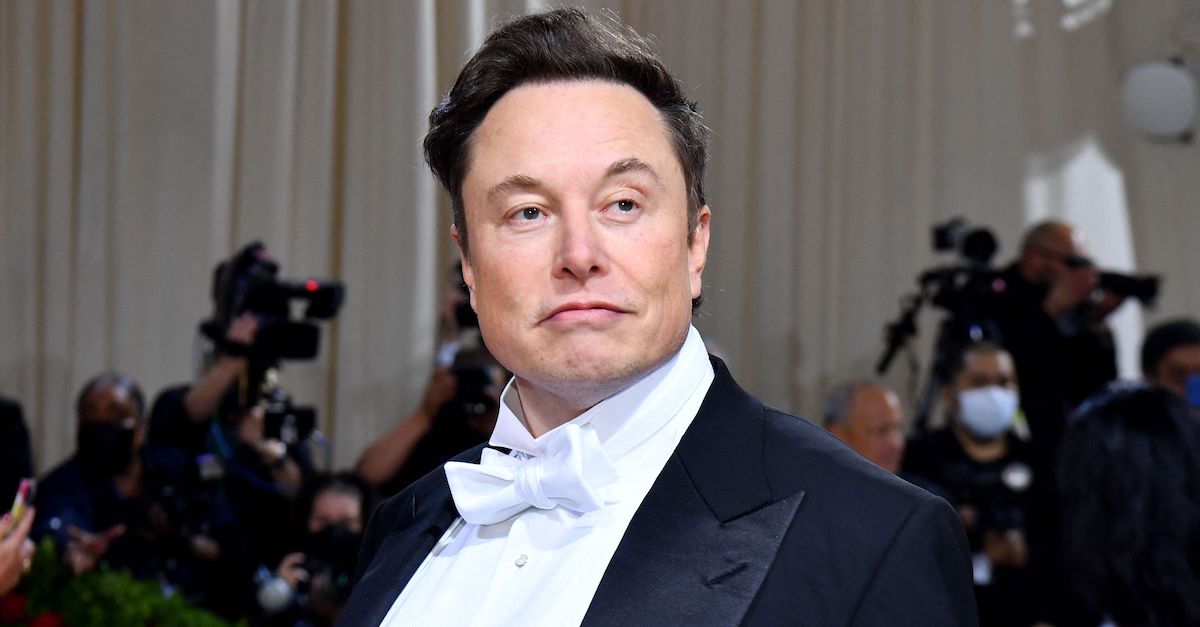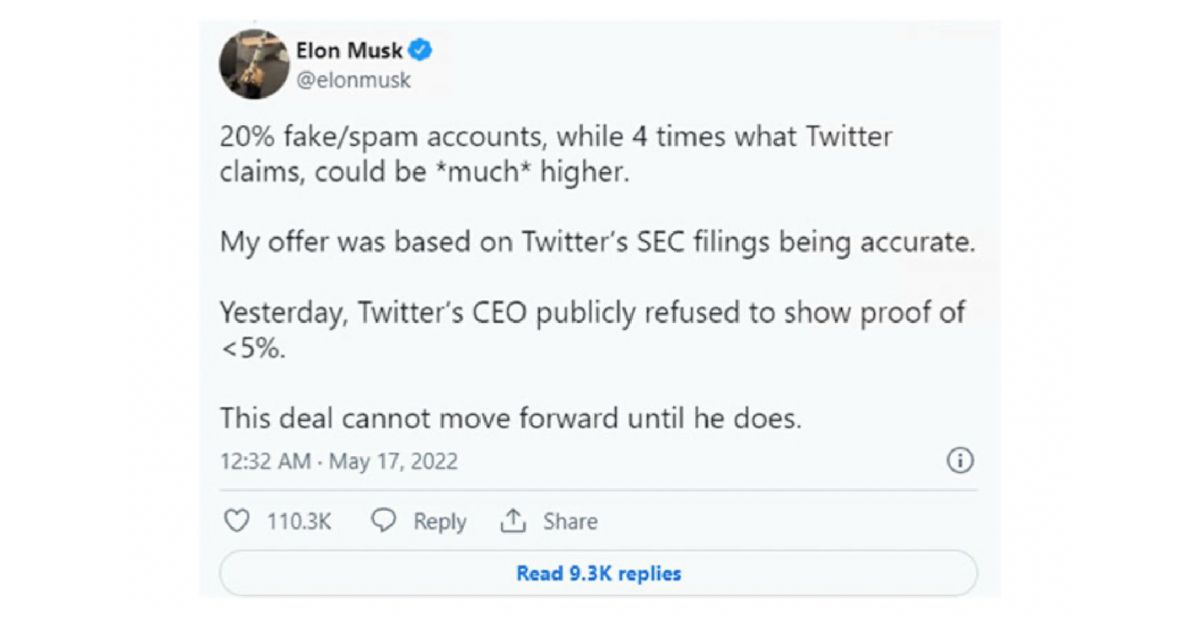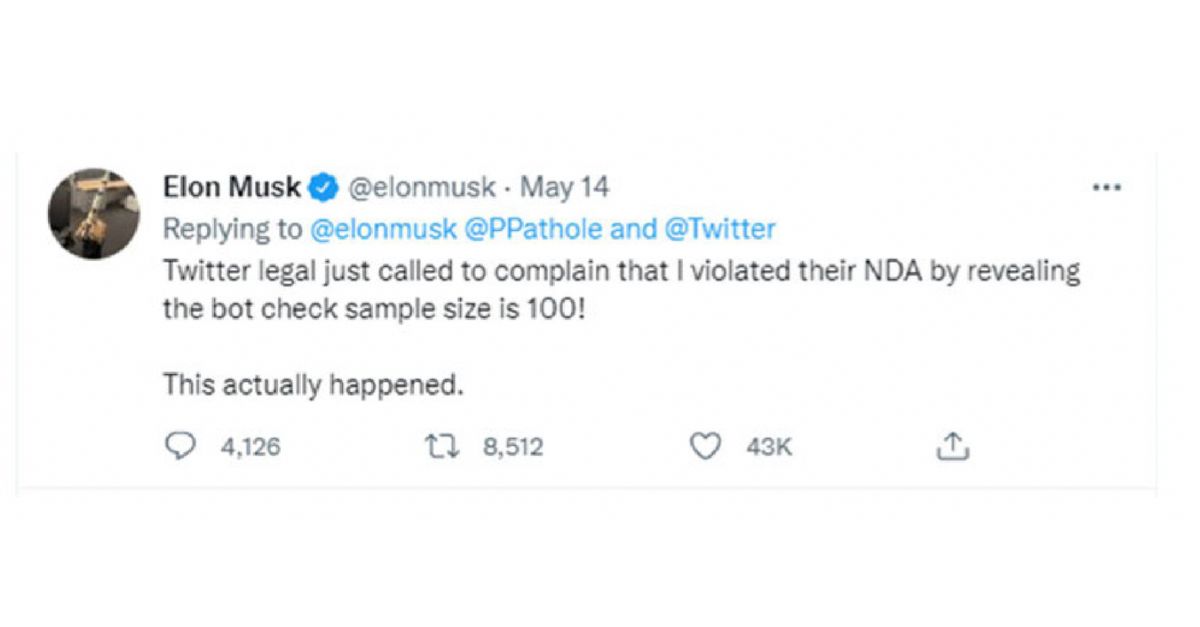
Elon Musk arrives for the 2022 Met Gala at the Metropolitan Museum of Art on May 2, 2022, in New York. (Photo by Dimitrios Kambouris/Getty Images for The Met Museum/Vogue)
A federal judge ruled to allow a class-action lawsuit over the acquisition of Twitter to proceed against Elon Musk Monday, reasoning that Musk’s false tweets, his own recklessness, and a comment featuring a poop emoji may well have constituted securities fraud.
A group of investor plaintiffs sued Musk for securities fraud alleging that Musk lied about the number of spam accounts on Twitter as part of a plan to drive down the company’s stock price and manipulate the terms of his acquisition. Musk bought the social media platform, which he has since renamed X, for $54.20 per share — but only after Twitter sued Musk to force the deal through.
In the days before Musk’s $44 billion purchase of the social media platform in October 2022, he posted a series of tweets that plaintiffs say were a deliberate manipulation of the company’s stock. The tweets were a series of statements indicating that Twitter had more fake or “bot” accounts — and therefore less actual users — than had been previously estimated.
Musk filed a motion to dismiss plaintiffs’ claims, but U.S. District Court Judge Charles R. Breyer, a Bill Clinton appointee, denied the motion as to most of the allegations against Musk.
Breyer reviewed Musk’s posts and ruled that it was “simple” to conclude that Musk made misleading statements to investors.
Specifically, as court documents show, Musk tweeted on May 13, 2022, that the Twitter deal was “temporarily on hold pending details supporting calculation that spam/fake accounts do indeed represent less than 5% of users.”

Breyer said that the statement could have been interpreted by a reasonable investor to mean that Twitter was obligated to provide Defendant with the requested information for the deal to close. On the day of Musk’s tweet, Twitter stock declined by over 9%.
“Because Twitter did not have an obligation to provide this data to Defendant under the terms of the Merger Agreement, Defendant’s representation that Twitter did have this obligation in order for the deal to close was false,” wrote Breyer. Breyer wrote in his ruling that it was not Twitter’s responsibility to provide information about bot accounts, but that it was Musk’s responsibility as part of his due diligence.
Musk’s tweets in the days to follow were found to be similarly problematic in creating and reinforcing a narrative that Twitter complied with its obligation by providing information to Musk about spam accounts.
Musk tweeted on May 16, 2022, that fake and spam accounts made up at least 20% of Twitter users. Twitter CEO Parag Agrawal responded in a comment that there was no way for external parties to calculate this information.
Musk’s response: dropping a poop emoji in the comment.
Breyer said that given the context — that Musk had recently tweeted that the deal was on hold pending details — a reasonable investor could have concluded that the information Musk referenced had come from Twitter.

Breyer also analyzed the allegations relating to Musk’s state of mind. To establish an actionable claim, plaintiffs would be obligated to prove Musk knew or should have known — or had “scienter”— that the information he tweeted to be false.
Breyer found that plaintiffs’ allegations “when viewed holistically, give rise to a strong inference of scienter.” The judge called Musk’s posts “deliberately reckless” in that Musk “consistently tweeted nearly real-time updates about the Merger Agreement, ‘touting’ his ‘intimate knowledge’ of the deal,” but failed to investigate the facts underlying the merger agreement.
“Even if he truly believed that Twitter had the contractual obligation to provide details about the company’s spam and bot data — which he argues he did — it was at least deliberately reckless to not investigate that obligation with respect to the Merger Agreement before making his statements,” Breyer wrote in his order.
The judge also rejected Musk’s immunity defense under the “Noerr-Pennington doctrine.” The rule allows certain parties to be immune from liability in business cases in which they have asked the government for protection from antitrust activity. Breyer flatly rejected Musk’s attempt to shield himself with the defense and ruled that Musk’s tweets are “plainly not [in] an ‘intimate relationship'” with any antitrust litigation.
Breyer did dismiss some of the plaintiffs’ claims against Musk.
Musk’s May 14, 2022, tweet said, “Twitter legal just called to complain that [he] violated the terms of their [Non-Disclosure Agreement] by revealing the bot check sample size is 100!” Musk declared in the tweet, adding: “This actually happened.” Breyer found insufficient allegations that this tweet was misleading and dismissed plaintiff’s claim based upon it.

Likewise, Breyer found that a series of Twitter exchanges between Musk and another user on May 21, 2022, were likely “opinions” which would have required the plaintiffs to allege that Musk himself did not actually believe their truth. In the exchanges, Musk said that he was “worried that Twitter has a disincentive to reduce spam,” and that it was “very suspicious” that Twitter had not responded to him about a discrepancy over account numbers.
Since Musk’s acquisition of “X,” he and the company have been embroiled in multiple lawsuits, and at least one “PR stunt masquerading as a lawsuit.”
“The order is a great result for the proposed class of Twitter investors, who should have been able to rely on Mr. Musk’s tweets concerning his purchase of Twitter,” said attorney Tyson Redenbarger on behalf of his plaintiff clients.
Representatives for Musk did not respond to a request for comment.
You can read the full ruling here.
Editor’s note: This piece was updated to include comment from counsel.
Have a tip we should know? [email protected]